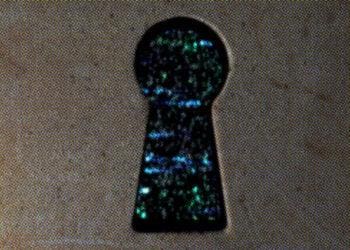When companies are tasked with investigating the alleged misconduct of current or former officers and directors at the urging of shareholders, they have a few options. An SLC is often the best way forward.
Authors’ note: This article is the first in a two-part series designed to provide a high-level overview with key insights to directors on what they need to know when facing the question: what does it mean to be a member of an SLC? Part 1 provides an introduction explaining the underlying reasons for SLCs; the lawsuits in which SLCs are involved; the powers of the SLC; and the process the SLC must undertake to remain independent and disinterested in the process. Part 2 explores the investigation process an SLC undertakes; the SLC decision-making process; the options available to the SLC including dismissals, settlements and pursuing litigation; and how company insurance can play in.
Companies are often tasked with investigating the alleged misconduct of their current or former officers and directors at the urging of shareholders. When a company receives such a demand, a thorough investigation performed by a committee of disinterested and independent directors, often called a special litigation committee (SLC), is the most effective method of dispute resolution for the company. The role of the SLC is to perform a thorough investigation of the shareholder claims, determine whether they have merit and determine whether it is in the best interest of the company to pursue those claims. Coming to this decision is challenging! A former SLC board member and their legal counsel provide practical insights below.
Two Types of Shareholder Litigation: Shareholder Derivative Lawsuits and Shareholder Direct Lawsuits
Derivative Lawsuits
A shareholder derivative lawsuit is a legal action brought by a shareholder for the benefit of a corporation. In a derivative suit, a shareholder can proceed in two fashions. First, a shareholder or shareholders can send a written letter, known as a demand, requesting that the board of directors cause the corporation to investigate and thereafter bring a lawsuit to redress corporate, not individual, harms. If the company investigates (typically through an SLC) and decides a lawsuit is not warranted, it will formally inform the demanding shareholders. Those shareholders may thereafter determine to file a derivative lawsuit against certain of the company’s former or current officers and board members alleging various breaches of duty.
As a second process, a shareholder or shareholders may proceed to file a lawsuit without sending a written demand, claiming that it would be futile to request the company investigate, as the board of directors is not independent and would not be able to conduct a proper independent investigation. In both instances, the harm belongs to the corporation, not the shareholders. Generally, courts will stay the pending lawsuit to give the SLC time to conduct its investigation and form its opinion.
After the investigation by the SLC committee is complete, the SLC may determine that a lawsuit is not in the best interest of the company and lacks merit to proceed. The SLC alongside the company can seek to end any pending lawsuit on the issue by moving to dismiss the matter. Alternatively, the SLC may determine all or some claims against all or some of the targeted officers or directors should proceed. In those instances, the SLC generally will present its position to the court and must determine how best to handle the fact that there is a plaintiff shareholder and his/her counsel looking to pursue their own action against the officers and directors. These issues can be complex and are discussed in more detail below.
Direct Lawsuits
On the other hand, in a direct lawsuit (such as a class action), shareholders sue the corporation directly seeking to redress individual harms. To have standing to bring a direct lawsuit, courts will often test whether the shareholders can prevail without showing an injury to the corporation.[1] The shareholders’ injury must be distinct and independent from the Company.
For example, a common shareholder claim is that the company’s financial statements contained material misrepresentations upon which the shareholders relied to purchase their stock. But shareholder beware, as courts will reject attempts to convert traditionally derivative claims into direct ones based on the failure of the allegedly liable parties to disclose their bad acts.[2]
Empowering the Special Litigation Committee
After receiving a shareholder demand, a company may form an SLC through a duly authorized board resolution. However, what most directors don’t know is that the composition, scope and duties of the SLC are oft widely contested.
Because the targets of the derivative demand may be current directors and officers of the company, those targets may hesitate to relinquish control over the investigation and ultimately, the decision whether to pursue litigation against themselves. While the structure of the SLC is customizable, two of the most common are:
- Full Authority: An SLC authorized to investigate the allegations; determine whether to dismiss, settle or pursue claims; and take any actions necessary to implement those decisions.
- Investigate and Report: An SLC authorized to investigate the allegations and report its findings to other decision-makers.
The key in determining which path is most appropriate is to understand that any decisions by the SLC need to be viewed as independent and formed by disinterested parties.
Why does it matter? The business judgment rule.
The business judgment rule states that a court will defer to the judgment of the SLC so long as the SLC was independent, acted in good faith based on facts and followed reasonable procedures.[3] The deference afforded to the SLC varies by jurisdiction.[4]
In other words, if the SLC is independent and disinterested and conducts its investigation using reasonable procedures and in good faith, courts will generally defer to the judgment of the SLC whether the allegations in the shareholder demand should be dismissed, settled or pursued.
The Independence and Disinterestedness of the SLC
Independence is broader than the concept of “interestedness” and more difficult to define. Interestedness refers to a direct interest in the outcome of the investigation, whereas a director’s independence concerns his or her ability to make decisions based on the corporate merits of the subject before the board rather than extraneous considerations or influences.[5] A director lacks independence if he or she is beholden to a controlling person or so under their influence that their discretion would be sterilized.[6] Some examples of things to consider when assessing independence include: significant business relationships, familial relationships and direct employment opportunities. For example, an SLC member who conducts significant business with, is related to or who can be fired by the target of the investigation has a more challenging time establishing their independence.
Tip: Utilize an independence and disinterestedness questionnaire to determine and document these types of relationships among SLC members and the targets of the allegations.
Compensation of the SLC
Service on SLCs can be quite time consuming and may involve considerable travel for meetings, depositions and other activities. For their service, SLC members may receive compensation, which must be approved by the board’s compensation committee. The fees paid for the service of an SLC member will likely not equate to the amount of time needed to handle all work required.
Choosing Counsel
Just like the SLC, the SLC’s counsel should be independent and disinterested to avoid conflicts of interest. If the SLC is represented by the same counsel who advised on a challenged transaction, a court may decline to find that the SLC was independent.[7]
Instead, the independent committee should retain separate counsel who is skilled in representing committees undertaking similar types of investigations. Identifying experienced, competent counsel can be difficult, and processing the contacts made with potential law firms can be time consuming.
Tip: Conduct a Request for Proposal (“RFP”) and have law firms submit their responses.
The RFP should call for prompt responses and should inform the responding law firms how the SLC intends to respond to the submissions and the timing of its process. The SLC will then need to review the replies and interview the finalists.
Other Experts
In addition to counsel, the SLC may need to hire experts to prepare technical analyses as part of the investigation. There are a number of search firms that specialize in experts that have experience testifying in litigation matters. Major universities and law firms may also have faculty members with relevant expertise that can be called on for analytic work.
Authors’ note: This article is the first in a two-part series designed to provide a high-level overview with key insights to directors on what they need to know when facing the question: what does it mean to be a member of an SLC? Part 1 provides an introduction explaining the underlying reasons for SLCs; the lawsuits in which SLCs are involved; the powers of the SLC; and the process the SLC must undertake to remain independent and disinterested in the process. Part 2 explores the investigation process an SLC undertakes; the SLC decision-making process; the options available to the SLC including dismissals, settlements and pursuing litigation; and how company insurance can play in.
[1] Tooley v. Donaldson, Lufkin, & Jenrette, Inc., 845 A.2d 1031, 1036 (Del.2004); Aboushanab v. Janay, No. 06 CIV. 13472 (AKH), 2007 WL 2789511, at *6 (S.D.N.Y. Sept. 26, 2007).
[2] See e.g. Kas v. Financial Gen. Bankshares, Inc., 796 F.2d 508, 513 (D.C.Cir. 1986) (stating that “a plaintiff may not ‘bootstrap’ a claim of breach of fiduciary duty into a federal securities claim by alleging that directors failed to disclose that breach of fiduciary duty”).
[3] Auerbach v. Bennett, 47 N.Y.2d 619 (1979); Boland v. Boland, 423 Md. 296, 332 (2011).
[4] In other jurisdictions, such as Delaware, the court may take an extra step and apply their own business judgment to the final decision.
[5] Orman v. Cullman, 794 A.2d 5, 24 (Del. Ch. 2002).
[6] Id.; see Aronson v. Lewis, 473 A.2d 805, 815 (Del. 1984).
[7] Brinckerhoff v. JAC Holding Corp., 692 N.Y.S.2d 381 (N.Y.App.Div.1999) (holding that plaintiffs raised reasonable doubt as to the reasonableness of demand committee’s investigation because the SLC was not represented by independent counsel but rather by an attorney who had represented the corporation in connection with the challenged transaction).













